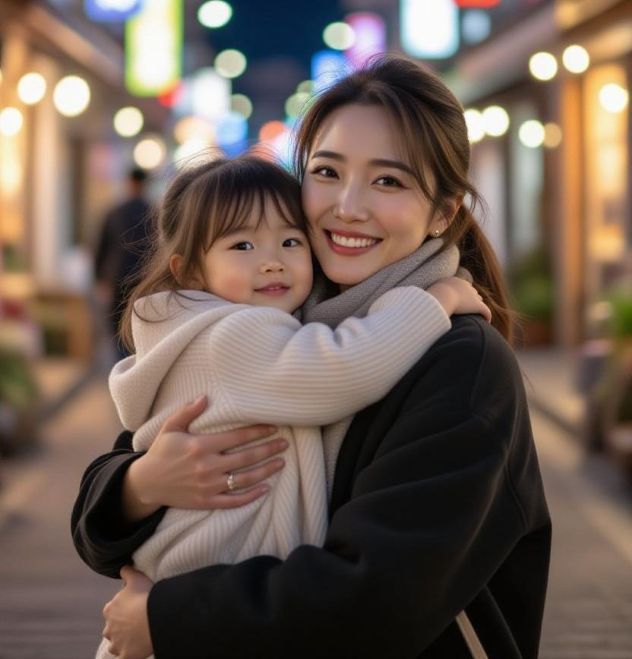
South Korea has one of the longest working hours among OECD countries, and Jeju Island is no exception. For many women, particularly mothers working in nightlife venues, balancing family responsibilities with late-night shifts is an everyday struggle. The island, famous for its tourism and vibrant entertainment spots, also highlights a hidden cultural tension: how mothers reconcile their roles as caregivers while contributing to the nightlife economy.
Within this environment, establishments like Jeju Room Salons (제주룸) featured on Bed Breakfast World reflect the dual lives of many working women. These venues thrive on the energy of night culture, yet behind the glimmer, many of the hostesses are mothers who return home at sunrise to care for their children. The contrast between being a parent in the day and a hostess at night shows the layered responsibilities women carry in South Korea’s rapidly changing society.
The Demands of Jeju’s Nightlife Scene
Jeju’s nightlife is booming, driven by tourism, conventions, and a rising demand for evening leisure. Bars, karaoke lounges, and entertainment venues often operate until the early morning hours, requiring staff to work long, unpredictable schedules. For single mothers or women supporting extended families, the job offers financial stability, but the trade-off is time. That time is often stolen from bedtime routines, school events, and everyday moments with children.
Unlike traditional day jobs, nightlife work comes with unique pressures. Appearance, charm, and emotional labor are just as important as punctuality and service. This means that working mothers are not only physically tired but also mentally drained after nights of entertaining guests. The toll of these demands often creates tension within families, but it also opens cultural conversations about what work-life balance means for women in Jeju.
The Hidden Reality of Working Mothers
Behind the neon lights are women leading double lives. By day, they pack lunches, attend parent meetings, and help children with homework. By night, they transform into hostesses or entertainers, serving clients who expect smiles and attentiveness. This reality creates a silent resilience, one that reflects the lengths mothers go to ensure their families have better opportunities.
Interviews with women in the entertainment industry reveal their conflicting emotions. Some feel guilty about missing milestones, while others see nightlife work as a practical means of survival.
“I wish I could be home at night, but this job pays for my daughter’s education,” shared one hostess in Jeju.
Such voices echo a broader truth: work and motherhood do not always align, but women adapt in order to provide.
READ ALSO: 6 Tips for Single Working Mothers
Cultural Conversations Around Work-Life Balance
South Korea has been openly debating gender roles and labor expectations. While men dominate many professional fields, women are often pushed into jobs that fit around domestic duties. The nightlife industry, although stigmatized, provides flexible entry points for women who cannot access higher-paying corporate jobs. This sparks conversations about whether society undervalues both caregiving and women’s labor.
Jeju’s unique identity as a tourist hub intensifies these discussions. Unlike Seoul, where corporate life dominates, Jeju thrives on service and hospitality. Women find themselves essential in shaping the island’s cultural and social life. Yet the question remains: should mothers be forced to choose between family and financial survival, or should the system evolve to support both?
Family, Resilience, and the Future
Balancing nightlife work and motherhood demands resilience, creativity, and support networks. Many mothers rely on grandparents or trusted relatives for childcare during late hours. Some form informal groups with fellow working mothers, helping each other navigate the overlapping worlds of parenting and entertainment. Despite the exhaustion, these women show extraordinary commitment to their families while sustaining Jeju’s nightlife economy.
- Childcare innovations: Calls for extended childcare hours have been increasing in Jeju to accommodate mothers working night shifts.
- Social recognition: Advocacy groups push for public awareness about the challenges mothers in nightlife face.
- Policy discussions: Proposals for labor protections and flexible welfare benefits are slowly entering South Korea’s political conversation.
Conclusion
Motherhood and nightlife may seem like two opposing worlds, but in Jeju, they coexist every day. Women who step into entertainment venues like Jeju Room salons embody a balance of strength and sacrifice, providing for their children while adapting to unconventional work hours. Their stories spark important cultural discussions about the value of caregiving and the need for a society that supports both family and labor. As Jeju continues to grow as a cultural and tourist hub, the balance between family and leisure remains at the center of its evolving identity.
